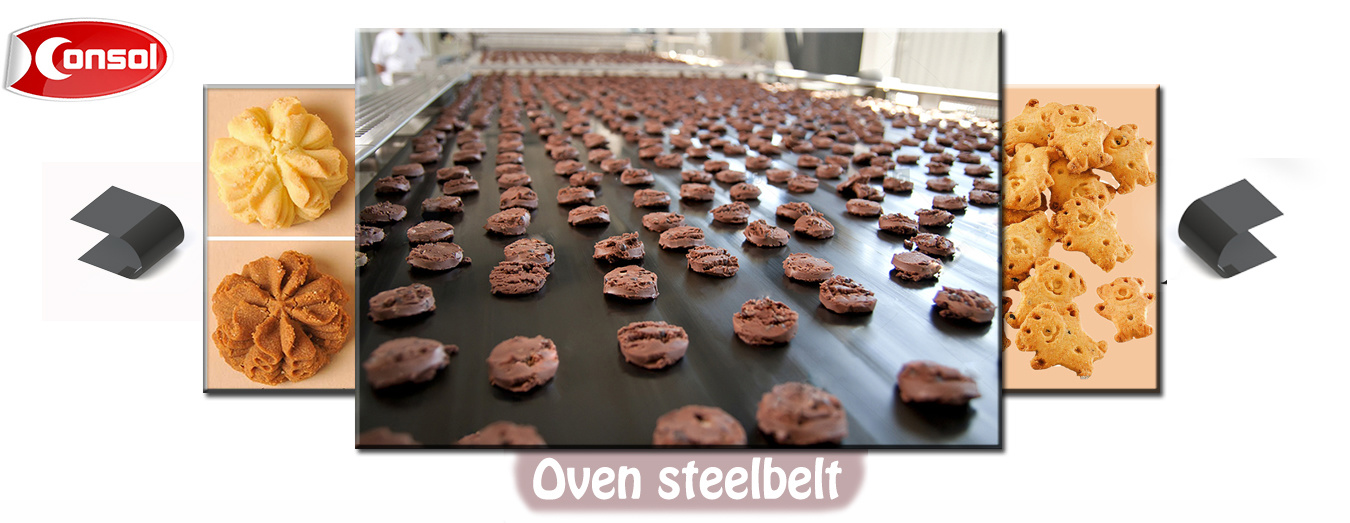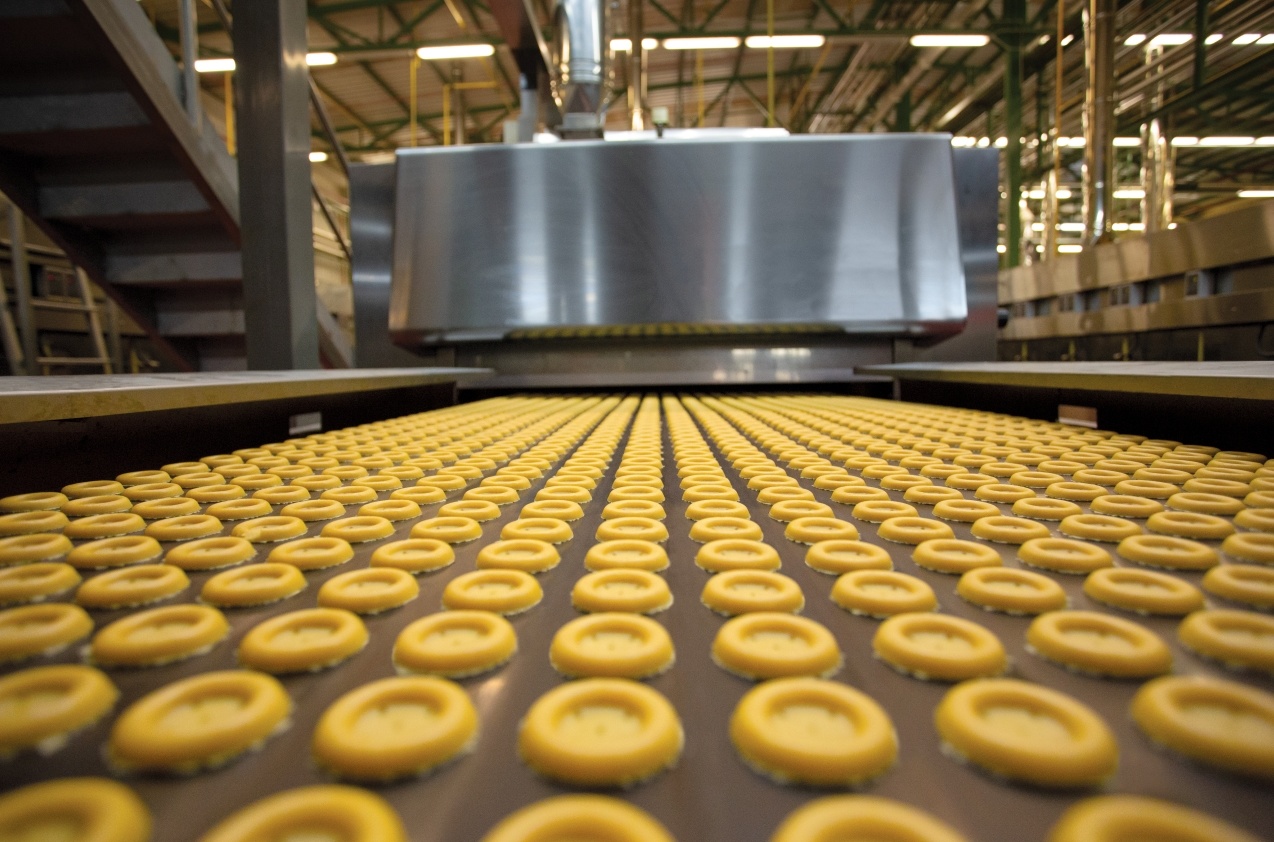Heat Transfer Showdown: Why CONSOL's Carbon Steel Belts Outperform Stainless in Critical Applications
In the world of industrial manufacturing and food processing, the conveyor belt is far more than a simple transport mechanism.
Jul 07,2025
In the world of industrial manufacturing and food processing, the conveyor belt is far more than a simple transport mechanism. It is the heart of the production line, a critical component that directly influences product quality, operational efficiency, and ultimately, your bottom line. When selecting the right solution for your industrial conveyor belt systems, the decision often boils down to two material titans: carbon steel and stainless steel. While stainless steel is often lauded for its corrosion resistance, a deeper analysis reveals that for applications where thermal performance is paramount—such as baking, drying, cooling, and chemical processing—carbon steel holds a distinct and powerful advantage. This is not just a matter of material science; it is a matter of specialized engineering and manufacturing focus. This article will conduct a detailed comparison between two key players in the metal conveyor belt supply market. We will look at CONSOL, a specialist carbon steel belt supplier laser-focused on high-performance carbon steel belts, and IPCO, an industrial giant with a broad portfolio including various stainless steel grades. By examining the critical metrics of heat transfer, durability, maintenance, and overall value, we will uncover why a dedicated approach to carbon steel engineering often delivers superior results where they matter most.
Table of contents:
Meet the Players: The Specialist vs. The Diversified Giant
Technical Comparison: Thermal Conductivity and Heat Transfer Performance
Strength and Durability in High-Temperature Environments
Repairability and Maintenance Ease
Custom Flexibility and Response Advantage
Price-to-Performance and New-Market Adaptability
Meet the Players: The Specialist vs. The Diversified Giant
Understanding the philosophy behind the manufacturer is the first step in understanding the product.
CONSOL
https://www.consolsteelbelt.com/
Headquartered in the global manufacturing hub of Guangzhou, China, CONSOL has carved a niche as a specialist in one thing: perfecting the carbon steel belt. Their flagship product, the CS1300, is the result of focused research and development aimed at maximizing the inherent strengths of carbon steel. With a global footprint spanning over 30 countries and a portfolio of manufacturing certifications, CONSOL combines specialized expertise with international quality standards. Their reputation is built on delivering exceptional precision, flatness, and thermal performance, making them a go-to carbon steel belt supplier for industries that depend on heat.

IPCO
With Swedish origins, IPCO is a formidable name in the industrial processing landscape. As a large-scale enterprise, they offer an extensive lineup of industrial belts, encompassing not only carbon steel but also a wide array of austenitic, martensitic, and precipitation-hardening stainless steel grades (such as the 1000SA, 1500SM, and 1650SM). Their strength lies in this breadth, providing solutions for an immense range of industrial needs, from food to chemical to wood-based panel production. Their brand is synonymous with quality and a long industrial heritage.

Technical Comparison: Thermal Conductivity and Heat Transfer Performance
For any process involving heating or cooling, thermal conductivity is the single most important property of your industrial belt conveyor. It dictates how quickly and evenly energy moves from the heat source, through the belt, and into your product.
CONSOL CS1300: CONSOL’s CS1300 is engineered from tempered carbon steel specifically to excel in this area. Carbon steel naturally possesses outstanding thermal conductivity. The properties of the CS1300 belt allow it to operate consistently at temperatures up to 350°C (662°F), making it an ideal choice for high-temperature applications like industrial baking tunnels and drying ovens. This high conductivity means faster heat-up times, more uniform product cooking or cooling, reduced energy consumption, and higher production throughput. CONSOL has capitalized on this inherent material advantage, refining it for maximum efficiency.
IPCO Stainless Grades: While stainless steel is an excellent material for many reasons, its thermal conductivity is generally lower than that of carbon steel. For comparison, a typical carbon steel belt has a thermal conductivity value significantly higher than many standard stainless grades. While IPCO's advanced martensitic (SM) and duplex (SAF) stainless grades offer improved conductivity—ranging from approximately 15 to 24 W/mK—this is often on par with or only slightly better than carbon steel's baseline, which CONSOL has optimized. The primary benefit of stainless steel lies in corrosion resistance, not raw thermal efficiency.
Insight: For pure heat transfer, the physics are clear. Carbon steel is the superior conductor. CONSOL’s strategic focus on optimizing this single property gives their CS1300 belts a decisive edge in applications where every degree and every second counts.
Strength and Durability in High-Temperature Environments
An industrial belt must withstand immense physical stress over millions of cycles. High static strength and fatigue resistance are non-negotiable for ensuring a long operational lifespan and minimizing downtime.
CONSOL CS1300: The CS1300 is not just thermally efficient; it is mechanically robust. It boasts high static strength and exceptional fatigue resistance, engineered to endure the continuous tension and flexion of a demanding production line. This durability translates into a proven lifespan exceeding 10 years in many applications, representing a reliable long-term investment. Its performance under thermal stress is consistent, providing stability and flatness even at elevated temperatures.
IPCO Stainless Grades: IPCO's high-strength stainless belts, particularly the 1500SM martensitic grade, also offer excellent mechanical properties, including a high fatigue limit (around 500-630 MPa) and strong welds. However, the behavior of stainless steel at very high temperatures requires careful consideration. Certain grades can become susceptible to distortion or reduced strength when operated continuously near their upper temperature limits (often cited as being between 250°C to 350°C, depending on the specific alloy). While durable, they may require more careful operational parameter control in intensely hot environments compared to a purpose-built carbon steel belt.
Repairability and Maintenance Ease
Downtime is the enemy of profitability. The ease and speed with which a belt can be cleaned and repaired are critical operational considerations.
CONSOL: The CONSOL CS1300 features a hard, smooth, and non-porous surface that is inherently easy to clean, preventing product buildup and ensuring hygienic operation. In the event of damage, its carbon steel composition makes for straightforward repairs. The belt can be expertly welded or even riveted on-site by trained technicians, often allowing for seamless repairs that restore the belt to its original flatness and strength without extensive downtime.
IPCO: IPCO belts are also designed for maintainability, with established procedures for welding and riveting. They offer advanced features like V-rope tracking systems to ensure proper alignment and reduce wear. However, repairing stainless steel, especially the more exotic, hardened grades, can be more complex. It often requires specialized welding techniques, equipment, and consumables to maintain the material’s specific properties (like corrosion resistance) at the weld point. This can translate to needing more highly specialized technicians or longer repair cycles.
Custom Flexibility and Response Advantage
The needs of modern manufacturing are not one-size-fits-all. The ability of a supplier to provide custom solutions and respond quickly can be a significant competitive advantage.
CONSOL: Operating from a dynamic manufacturing base in China, CONSOL is structured for agility. They are well-equipped to handle custom orders, OEM requests, and mixed batches without the long lead times often associated with larger, more standardized operations. This nimbleness allows them to work closely with clients to develop tailored solutions, whether it is a unique belt dimension or a specific surface finish, and deliver them with impressive speed.
IPCO: As a global industrial giant, IPCO's production is geared towards standardization and scale. This ensures consistent quality across a massive output but can make the company less agile when it comes to small, highly customized runs. Lead times for non-standard products may be longer, and the cost structure may be less favorable for buyers who do not require a standard, off-the-shelf solution.
Price-to-Performance and New-Market Adaptability
For any industrial buyer, the final decision rests on value. It is the balance of initial investment against long-term performance, durability, and operational cost.
CONSOL: CONSOL’s business model delivers a compelling value proposition. They offer a premium-performance carbon steel belt—with superior thermal conductivity and proven durability—at a highly competitive cost. This makes the CS1300 an ideal solution for established manufacturers looking to optimize costs as well as for businesses in emerging markets where maximizing the return on capital investment is crucial.
IPCO: IPCO’s stainless steel grades represent a premium investment. The higher material and processing costs are justified when the primary operational challenge is extreme corrosion, not heat transfer. For applications where stainless steel's unique properties are essential, the higher price point is warranted. However, for the wide range of applications centered on thermal processing, buyers may be paying a premium for a feature (corrosion resistance) they do not fully need, while compromising on the more critical metric of thermal efficiency.
The choice between a carbon steel and a stainless steel conveyor belt is not about which material is universally better, but which is engineered to be superior for a specific task. While IPCO offers a commendable range of robust stainless steel belts for diverse needs, the evidence points to a clear winner for thermal processing applications.CONSOL’s CS1300, born from a singular focus on perfecting carbon steel, delivers an unmatched combination of superior heat transfer, robust strength in high-temperature environments, ease of maintenance, and exceptional value. Its proven 10+ year lifespan in demanding applications like food baking and industrial drying makes it a smart, reliable, and cost-effective investment. For production lines where efficiency is measured in degrees and seconds, the specialized engineering behind a CONSOL belt makes all the difference.For those looking to optimize their production line with a proven, high-performance solution, exploring the benefits offered by a dedicated carbon steel belt supplier like CONSOL is the logical next step.
Related Posts
Steel belt pastillator granulation production line for jewelry wax middle temperature wax
Rotary belt condensation pastillator granulator&pelletizer is using low melting point characteristic of the material (50 ℃ to 300 ℃), through the feeding head, the liquid material will drop into the upstream moving steel belt,with the continuous spray cooling device set at the bottom of the steel belt (spray type water cooling), materials will be cooled quickly and become solidification in the process of conveying
Contact Us
E-mail
info2@consolbelts.com
Phone/WhatsApp/Wechat
+86 18820135908






